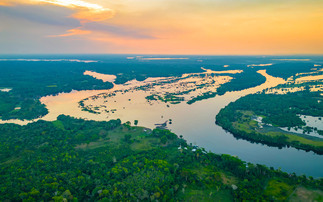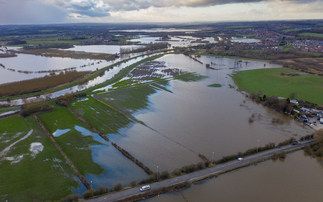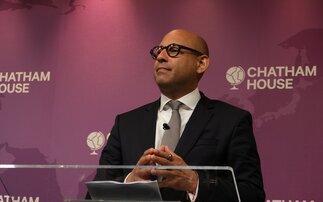AECOM's Ben Smith urges cities and businesses to develop effective strategies for climate resilience
Headlines from COP21 continue to focus on the ongoing international negotiations around enhanced action on climate change. While global consensus is certainly key, there is in fact significant scope for individual cities, local governments and businesses to make a real difference.
After all, non-State actors such as cities and businesses have the capacity, drive and creativity to address the challenges associated with climate change. As autonomous entities, cities and businesses can be more agile than governments. They have the ability to make decisions and take action more quickly. Indeed they are also well positioned to advocate behavioural change through their direct relationships with large numbers of people, whether urban communities or supply chains and clients.
As centres for activity, businesses and cities also have the necessary skills and expertise to drive the innovation agenda. Recognising the important role of businesses in tackling climate change, Microsoft founder Bill Gates used COP21 as an opportunity to launch a new initiative aimed at supporting clean technology start-ups. Given the urgent need for new technologies that cut carbon emissions, encouraging innovation through these types of schemes will be critical in mitigating the impact of climate change.
Importantly, becoming climate change resilient is vital for the future success of cities and businesses, as they often find themselves at the sharp end of climate change events such as unpredictable natural disasters and resource constraints. Given the potential scale and spread of climate threats, it's essential that cities and businesses find solutions. And this need is only likely to grow, with the percentage of the world's population living in cities expected to increase from 54% in 2014 to 66% in 2050, according to the UN.
Incorporating climate resilience into business and city planning will require an integrated approach that considers natural, human, economic and social systems. A resilience strategy is a long-term plan that enables a city or business to adapt to new and unexpected circumstances as they arise. While it is not possible to predict exactly what will happen in the future, resilience helps anticipate risk and, importantly, reduces threats to human life, physical assets and business continuity.
From planning for climate adaptation to protecting assets and safeguarding economic development, resilience is critically important. And it is not just about disaster preparedness, as resilience can provide immediate benefits. Take green infrastructure. Introducing green infrastructure filters urban pollutants from stormwater run-off and can help prevent flooding. Yet is also brings much-needed green space, enhances the public realm and can help raise property values.
Many cities and businesses already recognise the importance of resilience and have made moves to develop strategies that will help them tackle the impacts of climate change. AECOM is working with the City of Miami Beach in the US for example, to develop climate adaptation and resilience strategies to help the city protect its built environment in the face of rising sea levels and increased flooding. We are also undertaking similar work in Africa to assess the impact of urban development on natural assets and ecosystem services in cities including Durban in South Africa and Kampala in Uganda. The World Bank-funded project is designed to help city leaders and planners make well-informed, strategic decisions about planning, land use and investment. Our findings will be incorporated into a toolkit that can be used by the cities to support more sustainable planning.
There are a range of other tools and techniques that can help cities and businesses implement resilience strategies. This is a vital step in helping achieve business continuity. AECOM and IBM have created a ‘Disaster Resilience Scorecard' with the UN Office for Disaster Risk Reduction to help cities track and improve their resilience status. The scorecard reviews a range of aspects, such as environmental and financial factors, to measure cities' resilience to disasters. Earlier this year we also published a guide aimed at the private sector that includes a process for building corporate resilience. Such initiatives are likely to build momentum for resilience.
Resilience is becoming a clear route to tackling climate change. Programmes such as ‘100 Resilient Cities' is another initiative that helps cities prepare for the impacts of climate change. The scheme, which is being pioneered by the Rockefeller Foundation, funds the salaries of Chief Resilience Officers for two years across 26 cities in 20 countries. These individuals are implementing resilience strategies in response to specific challenges, which range from earthquakes in Quito and Christchurch to rising sea levels in Rotterdam. We are a strategy partner for the initiative, working with the programme's leadership team to develop a process that will aid the cities' work.
Clearly non-State actors are already playing a key role in the global fight against climate change. By choosing not to wait for the outcome of the ongoing international debate around targets and goals, they are taking decisive action to tackle the challenges now. There is much to be learned from this approach. After all, with the risks associated with climate change increasing, the time for action is now.
Ben Smith is director of sustainable development at AECOM
This article is part of BusinessGreen's Road to Paris hub, hosted in association with PwC.







